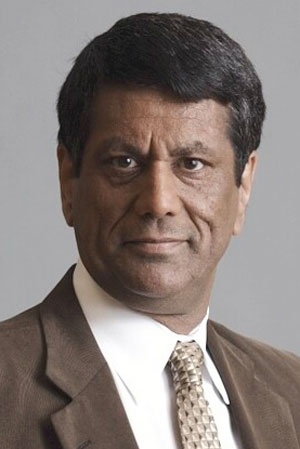Toronto lawyer Raj Anand has been nominated to lead Ontario’s new Human Rights Legal Support Centre, and the WeirFoulds LLP partner says he embraces the opportunity to play a key role in the province’s revamped human rights regime.

“I view it as a tremendous challenge, but I think this is a worthwhile and innovative experiment in providing access to justice in an area in which it has been sorely lacking under the existing system,” Anand tells Law Times.
Anand was nominated to the post earlier this month, by Ontario Attorney General Chris Bentley, but must be given the go-ahead by MPPs at the standing committee on government agencies before officially assuming the role.
Anand is “a recognized expert in the area of human rights law and I have no doubt that, if appointed, his leadership will help the new Human Rights Legal Support Centre fulfill its mandate as part of the province’s strengthened human rights system,” said Bentley.
The centre is slated to open June 30 and will provide support services for applications to the Human Rights Tribunal of Ontario. It was created in 2006 by the Human Rights Code Amendment Act and is considered the first agency in Canada to provide human rights support.
Anand, a Law Society of Upper Canada bencher, previously served as the chief commissioner of the Ontario Human Rights Commission and has heard complaints under the Ontario Human Rights Code.
He spent seven years as the Advocates’ Society representative on the law society’s equity advisory group, and served on the equality rights panel of the federal Court Challenges Program and on the boards of directors at the Advocates’ Society and Pro Bono Law Ontario. He is currently a member of the board of directors of Legal Aid Ontario and president of the University of Toronto Law Alumni Association Council.
In 2003, he received the law society’s highest honour, the Law Society Medal; and in June 2007 he was named professional man of the year by the Indo-Canada Chamber of Commerce.
Anand says he had long believed that the province’s human rights system was in “drastic need of reform” before the Liberal government introduced its reforms with Bill 107.
“I certainly commend the government for taking the step to institute that reform,” says Anand.
“This is essentially a marriage of access to justice and equality rights. It is the provision of access to justice to a group which is particularly disadvantaged.”
But Anand says the new regime will face many challenges during its start-up.
“The provincewide nature of the enterprise is important - that the service provided to an individual in the GTA and to a person in rural or other areas of the province needs to be equivalent,” he says.
“There are lots of important equality issues in the provision of services itself in terms of disability, in terms of language, in terms of minority status in other ways. With all that, there will be the challenges of doing this efficiently and doing it in a manner that’s accountable.”
While Anand’s schedule already is filled with his many activities aside from the human rights and employment law work he does at WeirFoulds, he doesn’t expect the new initiative to detract from those.
“This is a part-time position. In the start-up phase there undoubtedly will be a good deal of intensive work to be done,” says Anand, noting his nomination still must be finalized and his meeting with the standing committee on government agencies is yet to be set.

 “I view it as a tremendous challenge, but I think this is a worthwhile and innovative experiment in providing access to justice in an area in which it has been sorely lacking under the existing system,” Anand tells Law Times.
“I view it as a tremendous challenge, but I think this is a worthwhile and innovative experiment in providing access to justice in an area in which it has been sorely lacking under the existing system,” Anand tells Law Times.